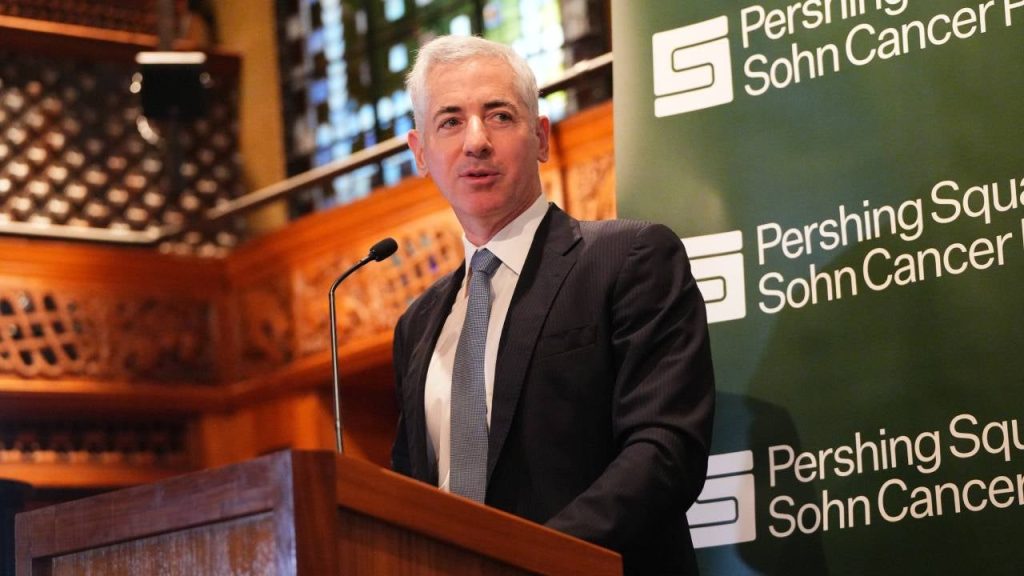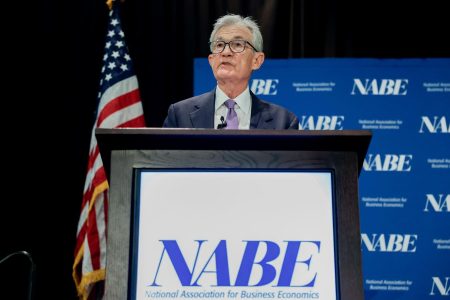Bill Ackman is the billionaire investor behind the hedge fund Pershing Square Capital, and he’s one of the most notable investors of the last two decades. Ackman typically bets big, with huge positions in stocks that are often momentarily out of favor or at least those where value has yet to be realized. Ackman often goes to the media to promote his positions, whether that’s a long investment or one that he thinks is poised to fall, such as his much-derided bet against Herbalife.
While Ackman has demonstrated outsize success, he’s not without some high-profile bombs, but either way, he has a brash confidence. For much of his career, he was an activist investor, one who takes stakes in companies and then tries to get them to change, perhaps by selling or spinning off a division, though more recently he’s moved on from this approach.
Below are seven key investing lessons from Bill Ackman about how to succeed at investing.
Key Bill Ackman quotes on investing
1. Invest heavily in your best stocks
Ackman believes in the value of running a concentrated investment portfolio, with most of his fund’s capital invested in his highest-conviction stocks.
“I think most investors overdiversify because they’re lazy,” says Ackman. “They haven’t done enough research into any of their companies. If they’ve got 200 positions, do you think they know what’s going on at any one of those companies at this moment?”
Ackman prefers a concentrated portfolio because it can outperform the market. If you select a portfolio of hundreds of stocks, the performance is generally going to look like that of the S&P 500 index, a collection of hundreds of America’s top companies. In contrast, if you’re picking individual stocks and you’re skilled at doing so, you can invest in the top stocks that are poised to outperform — earning returns that beat the market’s average return of 10 percent.
While diversification may not be attractive to the highly skilled investor, the flip side is that it can be a way for less skilled investors to earn strong returns with little work or knowledge. In fact, legendary investor Warren Buffett says that nearly all investors would be better off just buying and holding an S&P 500 index fund.
Did you know?
Over time, the S&P 500 has outperformed more than 90 percent of all investors, including the professionals.
But for Ackman and other investors looking to outperform, concentration is key.
2. Be confident, even if you’re wrong
It’s important to establish an investing process that allows you to be confident, even if you do end up being wrong. With confidence and a good process, you can make hard decisions, such as investing more when a stock declines and the investing world questions your judgment.
“If I believe that I am right, I will take it to the end of the earth until I am proven right,” says Ackman.
Ackman has made some great investments over the years, including in once-bankrupt mall owner General Growth Properties, Starbucks and Chipotle. But he’s also made some real stinkers, among them a short position on Herbalife, which he notably said he would pursue “to the end of the earth.” While he lost $1 billion on the trade, he maintained his confidence, even after a very public spat on TV with another great investor, Carl Icahn, who bought shares of Herbalife.
But confidence built on a good investing process can help you make a lot of money.
3. Don’t get emotional about investments
It can be easy to get yourself emotionally married to an investment, but Ackman advises against doing so.
“I’m not emotional about investments,” says Ackman. “Investing is something where you have to be purely rational and not let emotion affect your decision-making — just the facts.”
If you’re a short-term trader rather than a buy-and-hold investor, you need to constantly evaluate your investments to see whether it’s worth your money to buy, sell or hold them, in comparison to other potential investments. Active traders really do need to avoid wedding themselves to a stock, and they must be able to part with it when the risk-reward trade-off becomes unattractive.
In contrast, long-term investors in index funds, perhaps in a 401(k) account, may decide to take a different passive approach, since passive investing tends to beat active investing. Still, even a strong long-term investment such as the S&P 500 index isn’t a buy at any price.
4. Understand that markets can do anything in the short term
A good investment process focuses on the truth — whether a stock is undervalued, how good the business is and why. An investor tries to identify the underlying reality and where a stock is likely to move over time, even if it’s out of favor now or moves unfavorably after a purchase. But in the short term, a stock can do almost anything, depending on how traders are pushing it.
“What the market tells you in the short term is what a certain subset of people believe,” says Ackman. “That doesn’t mean they’re right.”
Over time, the true value of the company is established as further groups of investors weigh in on the stock. An investor who is focused on finding the truth about a stock can understand better where a stock is likely going over a longer period, even if it’s pushed around in the near term. For this reason, it’s important to be a fundamental investor by doing research on the business.
5. See what the other side is saying
As an investor, it’s important to see what the other side is saying about an investment to come to a better understanding about it and why it may or may not be an attractive purchase. For example, many great investors pay attention to the arguments made by short-sellers — those investors who take a negative position on a stock and profit from its decline.
“The benefit of short-sellers to the markets is they’re sort of the canary in the coal mine,” says Ackman. “They are the early warning signal about a problem in the business, a problem in the capital markets.”
Of course, investors don’t necessarily have to believe what a short-seller (or any other investor) is saying, but it can be valuable to see what other well-informed investors are saying about a stock. A negative investment report can help you develop a better investment thesis for the stock and discover what you should be watching for there. Unfortunately for Ackman, he didn’t listen clearly to other investors in Herbalife, who profited handsomely from his short position.
6. Don’t invest for an ego boost
Many people invest in order to be part of a community, looking for the ego rewards of participating in a group, but Ackman warns against this kind of emotional decision-making.
“In order to be successful, you have to make sure that being rejected doesn’t bother you at all,” says Ackman.
To succeed, you need to avoid using investing as a way to stroke your ego. For example, if you just want to be part of the crowd, you’ll end up buying investments because they’re popular rather than because they offer an attractive reward for the risk.
Key insight
The best investments are often in out-of-favor sectors, and if you need to be liked as an investor, you’ll immediately avoid looking at these potentially blockbuster investments because they’re shunned (for now).
However, if being part of the crowd — or being against it — is not what’s driving your investing process, you may be able to find winning investments in out-of-favor industries.
7. Stay optimistic
As an investor and just generally in life, it’s important to stay optimistic, suggests Ackman.
“I’ve seen very few people in the world accomplish anything unless they were optimists,” says Ackman.
While optimists may be wrong, it’s important to get out there and keep trying. The stock market has delivered attractive long-term returns, and you can earn those returns through a simple investment process. But if you’re pessimistic, you won’t even begin the process of investing.
To put this another way, you need to see the connection between your effort and your results. When you begin putting in the right effort, you’ll see results over time. Optimism helps you stay motivated to put in the right amount of time and energy while you wait for the results to come. That can be especially important for investing, where it may take years for the results to come from the right effort. But as you can see in the chart for the S&P 500 — up and to the right for decades — if you stay optimistic and keep investing, you can make a lot of money in the market.
Bottom line
Bill Ackman has been one of the most successful investors for quite a long time, and so it can be valuable to understand his approach and how it may help you become a better investor. While Ackman’s insights are often more targeted to active or professional investors, even beginning or passive investors can take away some insights from how this billionaire invests.
Editorial Disclaimer: All investors are advised to conduct their own independent research into investment strategies before making an investment decision. In addition, investors are advised that past investment product performance is no guarantee of future price appreciation.
Read the full article here












